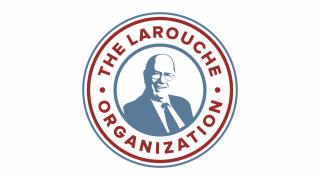March 16—On Wednesday night, emergency international action was taken to save Switzerland’s Credit Suisse—to the tune of $54 billion. Less than one day later, it appears that California’s First Republic bank, larger than the recently bailed-out Silicon Valley Bank, has received the same treatment, getting an emergency bailout of $30 billion Thursday, this time from leading U.S. banks. Will these actions be successful in stemming the tide of contagion? How deep, how entrenched does it go? This is the proverbial $64 trillion question—the everything bubble.
Former Assistant Secretary of Treasury for Economic Policy, Paul Craig Roberts, has pointed to the lurking elephant in the room: The big 5 banks in the U.S. are leveraged over 100:1 in the derivatives market. If this bucking bronco of a financial crisis swerves even close to derivatives territory, these big 5—and by default the rest of the U.S. economy and the world—will bring the world that we presume currently exists to its knees.
Though the perception-management teams have been in high-gear assuring the public that the “banking system is sound,” the truth is, as Roberts said: “No one knows” how bad this thing will be. If you catch yourself thinking: “It’s not that bad,” or, “They won’t let that happen,” go take a bath in some ice-water and snap out of it.
Sane leadership in the United States would act now as called for by Lyndon LaRouche since July 2007, and Helga Zepp-LaRouche in her recent call for an international conference to reorganize the financial system. There is no more kicking the can down the road, since today’s looming crisis is the result of the refusal to abandon a policy of endless money-pumping into the financial system. Since 2008, the spigots of cash have been opened wide, merely to keep financial values afloat, even if only for another month, another week. The reversal of this with the recent raising of interest rates, is the true trigger for this meltdown—not some isolated problem with tech start-ups in Silicon Valley. A new Glass-Steagall standard must be applied—and on a global scale among the international community—if the pending blowout of this bankrupt system is to be stopped, and the populations to be protected.
But even this is not the full picture, as today’s crisis is deeper than failed financial policies. Consider the mass of protest movements breaking out across Europe in response to the collapse of living standards. Consider the despair as citizens witness the lack of concern for even the most basic levels of safety in public infrastructure, as was the case in Greece’s horrific train crash, or the endless succession of train derailments in the U.S. Consider the ongoing shipments of weapons and munitions to Ukraine, though Ukraine is running out of bodies with which to use them, all the while inflation skyrockets at home.
Consider also Syrian President Bashar al-Assad’s visit to Moscow, where he met with Russian President Putin, compared to the West’s criminal policy of “regime-change” wars and “balance of power.” Think of the image of these two presidents—one falsely accused of violating the sovereignty of another nation, meeting with a president whose nation’s sovereignty is actually being violated by the one doing the accusing! As expressed explicitly by Kremlin spokesman Dmitry Peskov, this meeting included discussion on “cooperation in the context of the reconstruction of Syria, with an emphasis on the absolute priority of Syria’s sovereignty and territorial integrity.” And this, while the U.S. continues to impose unilateral sanctions on Syria with the explicit intent of preventing that nation’s reconstruction.
The West’s intransigence stands in the way of its very own survival. This is the case with today’s financial crisis, and all the way up to its welcoming of a thermonuclear World War III, as recently summoned by U.S. Senator Lindsey Graham’s comments to Russia. Sane leadership would acknowledge this, and demand a policy in defense of human life—not a defense of failed ideological values.
Think this sounds like too much? Think again. The representatives of most of humanity had already recognized the Western financial system as hopelessly bankrupt years ago, and have been moving to establish a new financial system outside of its reach and for the physical economic development of nations, as exemplified by the BRICS and related institutions. It is high time patriots throughout Western nations demand that their governments come to their senses and collaborate toward this obvious mission of international economic development, and let the financial parasites collapse.
Towards this end, a delightful contribution was announced Wednesday, in the form of China’s new Global Civilization Initiative, following from its earlier Global Development Initiative and Global Security Initiative—responsible for the recent breakthrough in Saudi Arabian-Iranian relations. In an echo of Lyndon and Helga LaRouche’s calls from years prior, President Xi Xinping said of his new initiative that it aims at “the establishment of a global civilization dialogue” which can help to “prosper the world’s garden of civilizations.”
Let us seize this moment of opportunity, and not wait until it is too late.






